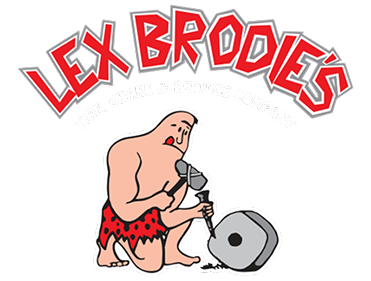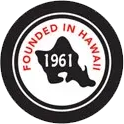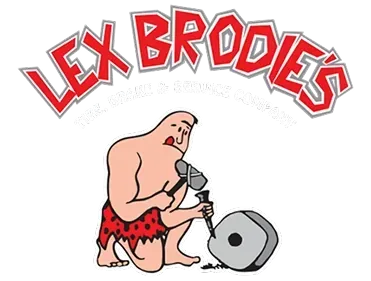Tire Purchase Q & A
Questions Customers Ask
Lex Brodie's Answers for Those Questions
Why Do Cars Need Alignments? Click here.
Click Here to see how we stack up to the competition…
Want Help from our tire experts? Please click here for a Personal Tire Shopper.
Q - Where to Install 2 New Tires: I’ve heard that when replacing two tires (when I don’t have different size tires on the front and rear), the new tires need to go on the back, can you share why?
A - Putting the new tires on the rear (when there isn’t a staggered tire size fitment), is the industry standard to help increase driver safety and to help prevent oversteer in wet conditions. Tires with deeper tread are more resistant to hydroplaning and this is why we place them on the rear. Please view these resources to learn more:
Michelin Tires "Installing New Tires - Where to put Two new Tires": Click here
Lex Brodie's "Caution! When Changing Two Tires": Click here
Q - TPMS Stem Replacement: How much does it cost to replace a TPMS (Tire Pressure Monitoring System) Stem?
A - For most vehicles, the TPMS Stem cost $49.99 to $59.99 each. If purchased when buying new tires, the installation fee is no charge (since the tires are dismounted). If the TPMS stems are purchased with existing mounted tires, then there is a $30 TPMS installation charge since the tires need to be dismounted and then remounted ($30 rate applies to OE wheels & tires, non runflat tires and tire 45 series or taller). Once the new TPMS stems are installed, there is then a TPMS Reset / Reprograming Procedure (with the onboard computer) at $40 (this charge is the same whether 1 TPMS Stem or all 4 TPMS stems are replaced).
Q - TPMS Stem Life: How long do TPMS Stem Batteries Last? (Thus, when is it become more likely I should replace the TPMS Stems?
A - TPMS Stems have batteries, but since they are sealed units, the batteries cannot be replaced. Thus, when the batteries fail, the TPMS Stem needs to replaced. We are seeing, that on average, TPMS stems are lasting 6 to 8 years.
Q - Tires Age & When to Replace: Why is it recommended to replace tires that are 10 year (or older) even when the tires have alot of tread depth left?
A - Tires that are 8 years or older can start to crack and show visible signs of their age. Over our last 60+ years of experience servicing tires on Oahu, Lex Brodie's has made it their policy to not service tires that are 10 year or old (regardless of tread depth or mileage). An example: a full size spare, that was over 10 years old, is installed on a vehicle only to have it fail a few blocks down the road. Most radial tires manufacturer warranty ends after 6 years, which in most cases, the tires would wear our during those years. Here is a really good article on the topic from Edmunds.com: How Old and Dangerous Are Your Tires?
Q - Tires that are Run Flat Tires: If my vehicle comes O.E. (Original Equipment - from the manufacturer) with Run Flat Tires, do I need to put Run Flat Tires back on my vehicle when my tires need replaced?
A - At Lex Brodie’s, we have made it our policy to replace O.E. Run Flat Tires only with new Run Flat tires. Many vehicles that come from the factory with Run Flat tires are not equipped with a spare tire. Vehicles engineered with Run Flat Tires are less likely to leave you stranded on the road with a flat tire.
Q - How to know if you have Run Flat Tires: How do I know if I have Run Flat Tires?
A - First, look to see if the tires have "Run Flat" on the tires (Pirelli Tires list "Run Flat" on the tires. Then, look for codes RFT (Run Flat Tire; Bridgestone Tires), SSR (Self Supporting Run flat; Continental Tires), ROF (Run On Flat; Goodyear, Bridgestone, Dunlop Tires), EMT (Extended Mobility Technology; Goodyear Tires), ZP (Zero Pressure; Michelin, Yokohama Tires), ZPS (Zero Pressure System; Michelin, Yokohama Tires)or DSST (Dunlop Self Supporting Tire).
Q - AWD Drive Vehciles and 4 Tire Replacement: I’ve heard I may need to replace all 4 tires for my AWD vehicle, is that true?
A - It is best to refer to your owner’s manual to verify the requirements for you vehicle, as most AWD Vehicles will have specific tire replacement recommendations. Please also refer to our LBU (Lex Brodie’s University) resource: I NEED TO DO WHAT? - A 4WD TIRE BUYING GUIDE
Q - Tire Speed Ratings: Is it ok to change the Speed Rating when replacing my tires?
A - A tire's Speed Rating indicates how fast you can drive, at sustained speeds, without the tire failing. Vehicles are engineered with tires to maximize that vehicle's handling, braking, and driving characteristics. Deviating from the O.E. Speed Rating can adversely affect driving characteristics. Please also refer to Lex Brodie’s Speed Rating Brochure: Click here
Lex Brodie's speed rating notice: "Caution! If you choose to lower the Speed Rating of your New Tires" poster: Click Here
Q - Tires that are Run Flat Tires: If my vehicle comes O.E. (Original Equipment - from the manufacturer) with Run Flat Tires, do I need to put Run Flat Tires back on my vehicle when my tires need replaced?
A - At Lex Brodie’s, we have made it our policy to replace O.E. Run Flat Tires only with new Run Flat tires. Many vehicles that come from the factory with Run Flat tires are not equipped with a spare tire. Vehicles engineered with Run Flat Tires are less likely to leave you stranded on the road with a flat tire. Please note: When Run Flat Tires are on the vehicle, all 4 tires need to Run Flat Tires. Click here for Run Flat Tires Handout (available at our stores).
Also, Please Visit Lex Brodie's University (LBU)
Visit Lex Brodie’s University (LBU): Click here
*
See coupons page for additional details











